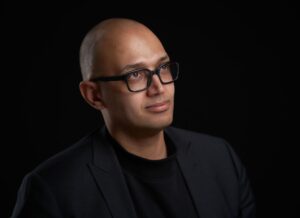
Why Skills-First Leadership Is Replacing the Ivy League Playbook in the C-Suite
The old prestige pyramid—where Ivy League degrees and blue-chip consulting backgrounds paved the way to the CEO seat—is cracking.

Caroline Ellison, a former executive at the cryptocurrency exchange FTX, has been sentenced to two years in prison and ordered to forfeit $11 billion in ill-gotten gains. Ellison was found guilty of multiple charges related to the collapse of FTX, one of the world’s largest cryptocurrency exchanges.
Ellison pleaded guilty to eight charges, including wire fraud and conspiracy to commit wire fraud. She admitted to her role in the scheme to defraud investors and misuse customer funds.
In sentencing Ellison, the judge cited the seriousness of her crimes and the harm they caused to FTX’s customers. He noted that Ellison had betrayed the trust of investors and contributed to the collapse of a major financial institution.
Ellison’s sentence is significantly shorter than those imposed on other individuals involved in the FTX fraud. Sam Bankman-Fried, the founder of FTX, was sentenced to 11 years in prison, while other executives received even longer sentences.
Some legal experts have criticized the judge’s decision to impose a relatively lenient sentence on Ellison. Given the scale of her crimes, they argue that she should have received a harsher punishment.
Despite the leniency of her sentence, Ellison will still face significant consequences for her actions. She will be required to forfeit $11 billion in assets, which will be used to compensate victims of the FTX fraud.
Ellison’s case is a stark reminder of the risks associated with investing in cryptocurrencies. The collapse of FTX exposed the vulnerabilities of the cryptocurrency market and the potential for fraud and abuse.
Ellison’s sentencing concludes one of the most high-profile cases in cryptocurrency history. It serves as a warning to others tempted to engage in fraudulent activities in the financial markets.

The old prestige pyramid—where Ivy League degrees and blue-chip consulting backgrounds paved the way to the CEO seat—is cracking.

Loud leaders once ruled the boardroom. Charisma was currency. Big talk drove big valuations.

But the CEOs who make history in downturns aren’t the ones with the deepest cuts

Companies invest millions in leadership development, yet many of their best executives leave within a few years. Why?

The most successful business leaders don’t just identify gaps in the market; they anticipate future needs before anyone else.

With technological advancements, shifting consumer expectations, and global interconnectedness, the role of business leaders

Maushum Basu is a visionary leader who inspires his team with a clear, compelling purpose. Unafraid to take calculated risks, he understands that growth often stems from change and innovation. His deep commitment to both Airia Brands, Inc.

When speaking with Martin Paquette, one thing is immediately apparent: he’s honest. His transparency is refreshing. While many shy away from such vulnerability, Paquette sees it as a force to reckon with. The incredible emotional intelligence speaks to years of looking within—it’s also what allows him to acknowledge his mistakes gracefully and use them as opportunities to innovate.

Marina Charriere, CEO of Star Drug Testing Services, Star Drug Testing Services (Windsor Park), and First Defence Face Masks go hand in hand. Star is a drug and alcohol testing facility, and First D F M is a face mask company.

Lejjy Gafour, CEO, CULT Food Science Corp. Lejjy is a self-taught entrepreneur and experienced company operator who made his start creating opportunities at the young age of 14, and he has been working, leading, and building businesses ever since.


Leave us a message
Subscribe
Fill the form our team will contact you
Advertise with us
Fill the form our team will contact you